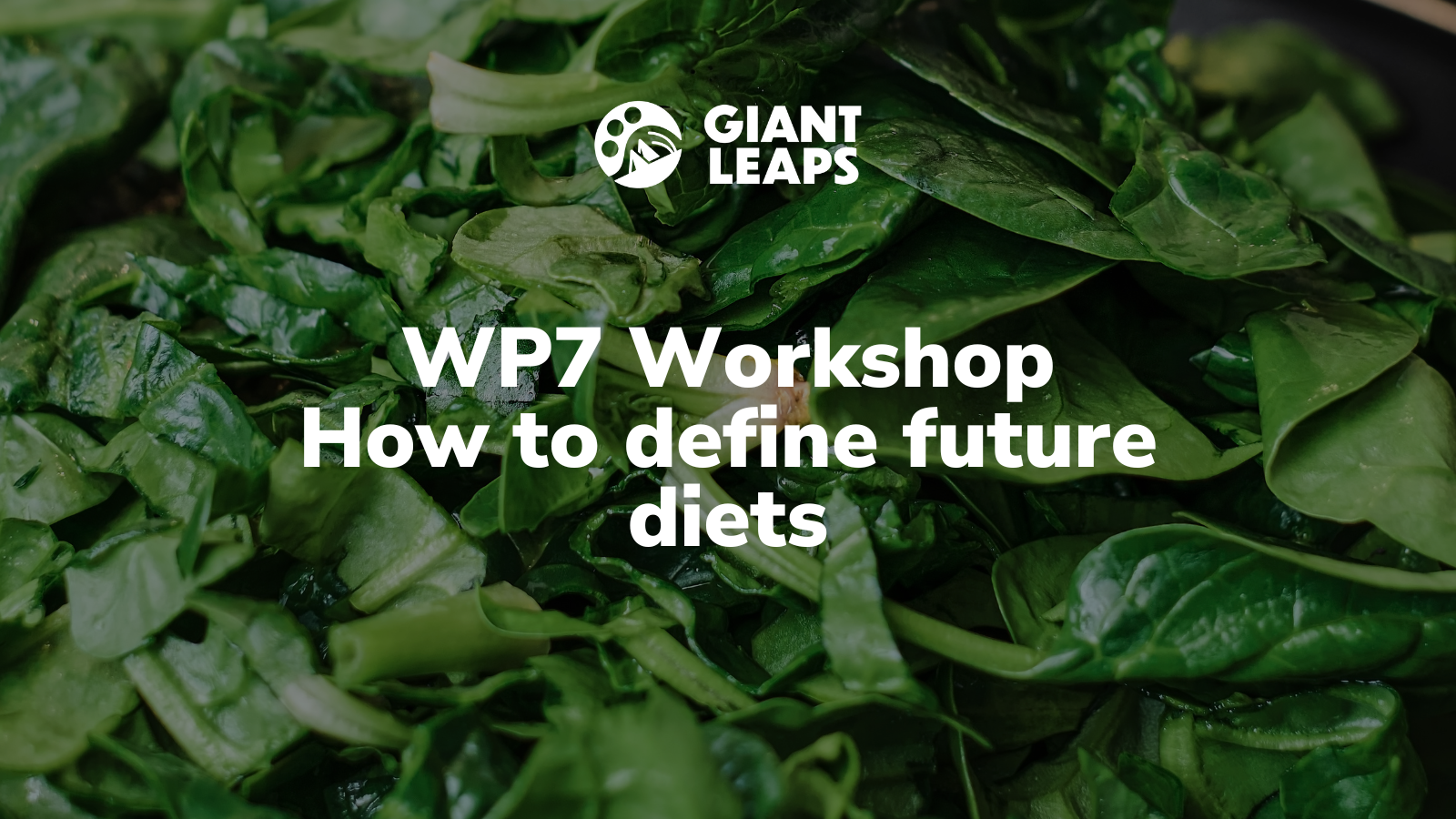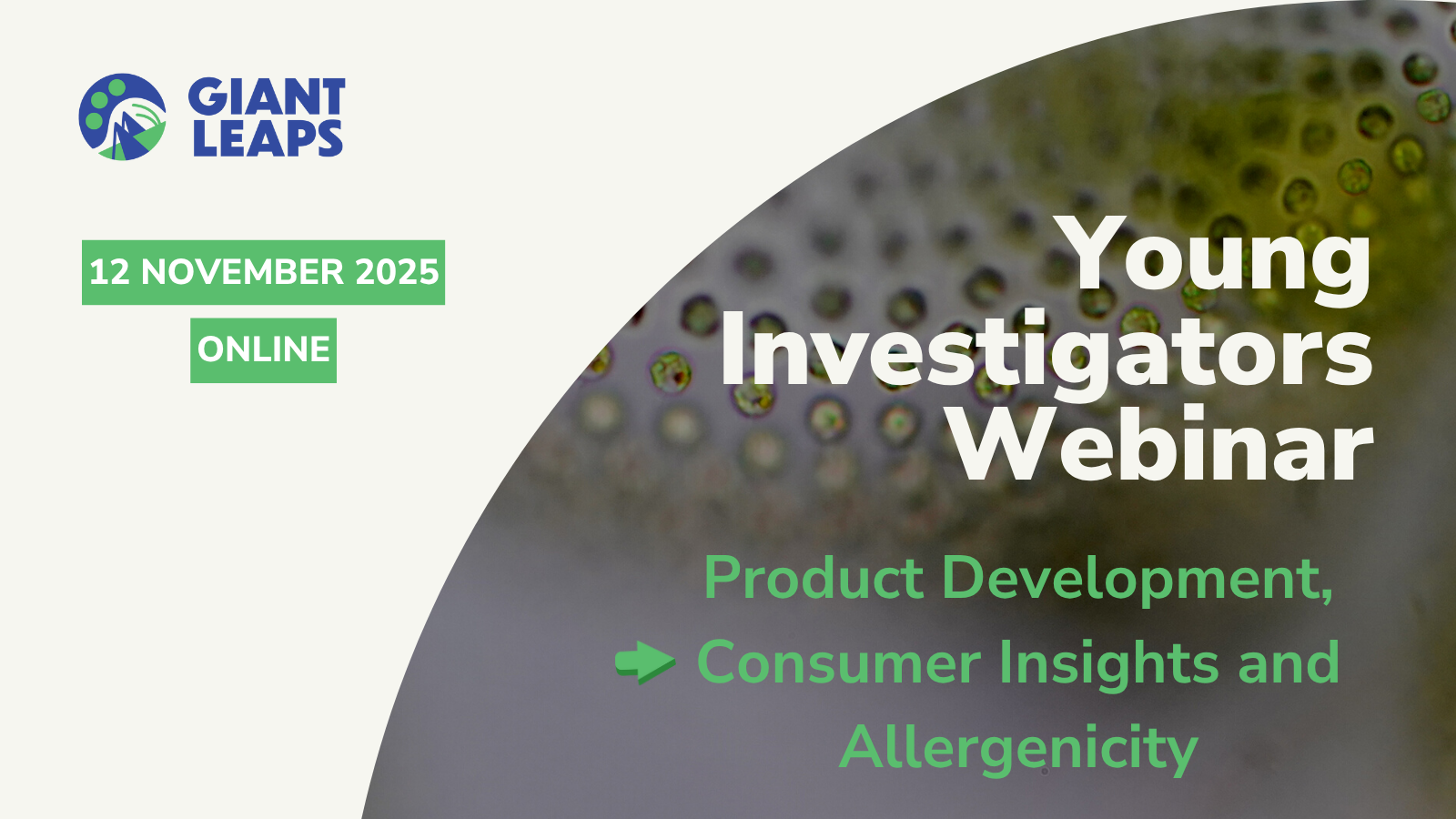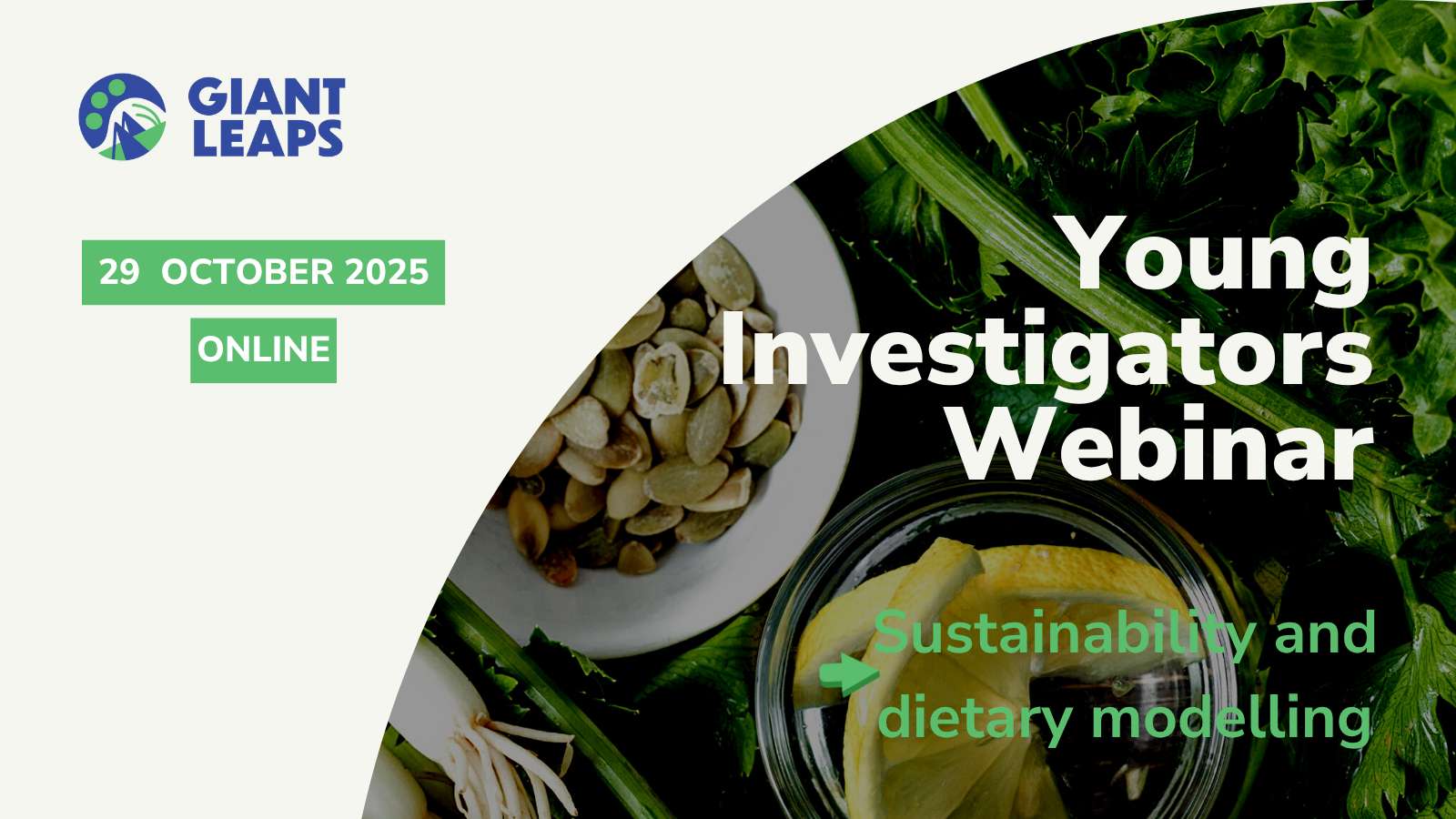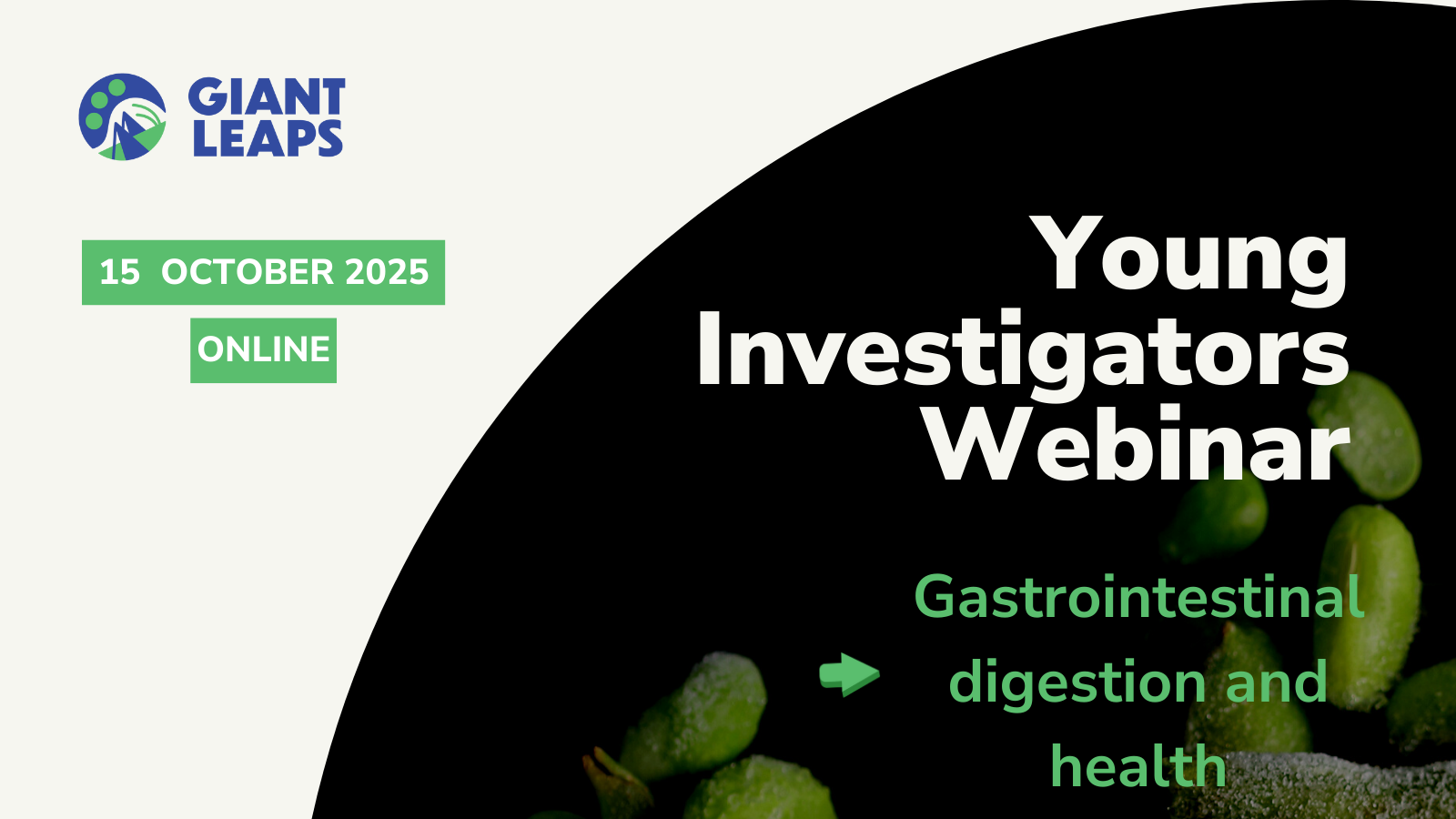WP7 Workshop: How to define future diets

On January 12th, members of work package 7 of the Gian Leaps project presented a workshop on future diets.
As part of the Gian Leaps project, Work Package 7 is dedicated to the enhancement of dietary transitions. It aims to make a comprehensive evaluation of the impacts of the foreseen dietary shift using alternative protein-derived foods on human health and the environment, to subsequently compare these with current, conventional diets.
Eventually, the goal of this initiative is to advocate for dietary shifts that are aligned with consumer preferences complying with health and environmental requirements.
This particular workshop had a focused objective: to outline the conceptual framework of future diets through thorough
debates on several key discussion points. The workshop explored the following themes:
- Defining Future Diets: Should the definition of future diets primarily stem from established dietary guidelines or from current consumption patterns?
- Extreme Consumption Scenarios: Is there merit in incorporating extreme consumption scenarios, such as those involving less protein?
- Incorporating Key Indicators: What array of indicators should be included? Ex: nutrients, economic costs, consumer preferences, functional aspects, etc.
- Protein Sources: What new sources of protein and protein-rich foods should be included, and how can they be seamlessly integrated into diets?
An updated workshop was conducted on June 30th in order to update the Stakeholder Board on the activities performed
subsequent to the previous meeting, as well as to show how their input had been incorporated. Furthermore, participants
discussed some points regarding upcoming activities. These points included:
- Strategies for the integration of alternative proteins in diets
- Methods to incorporate consumer preferences into future diets
- Identification of other indicators that should be included



